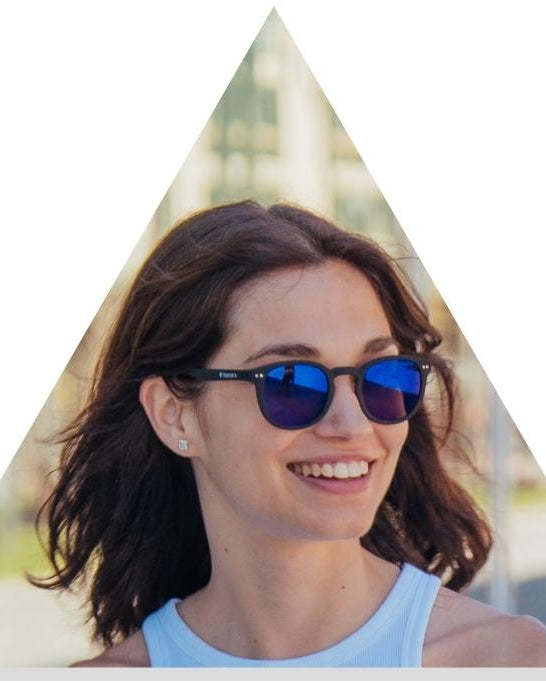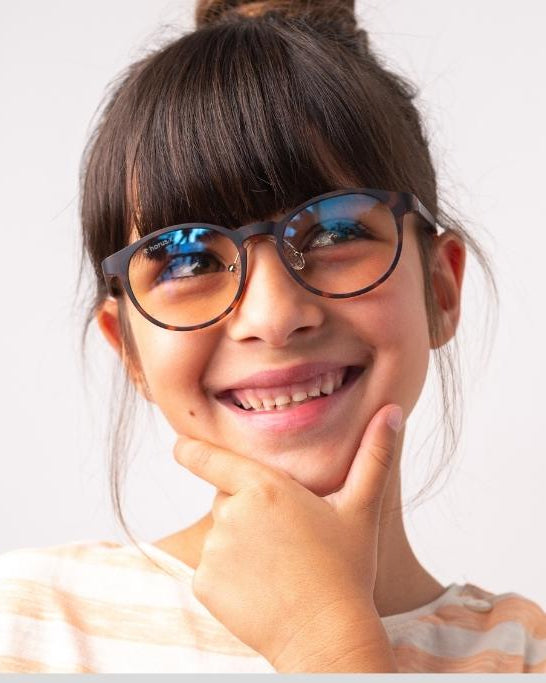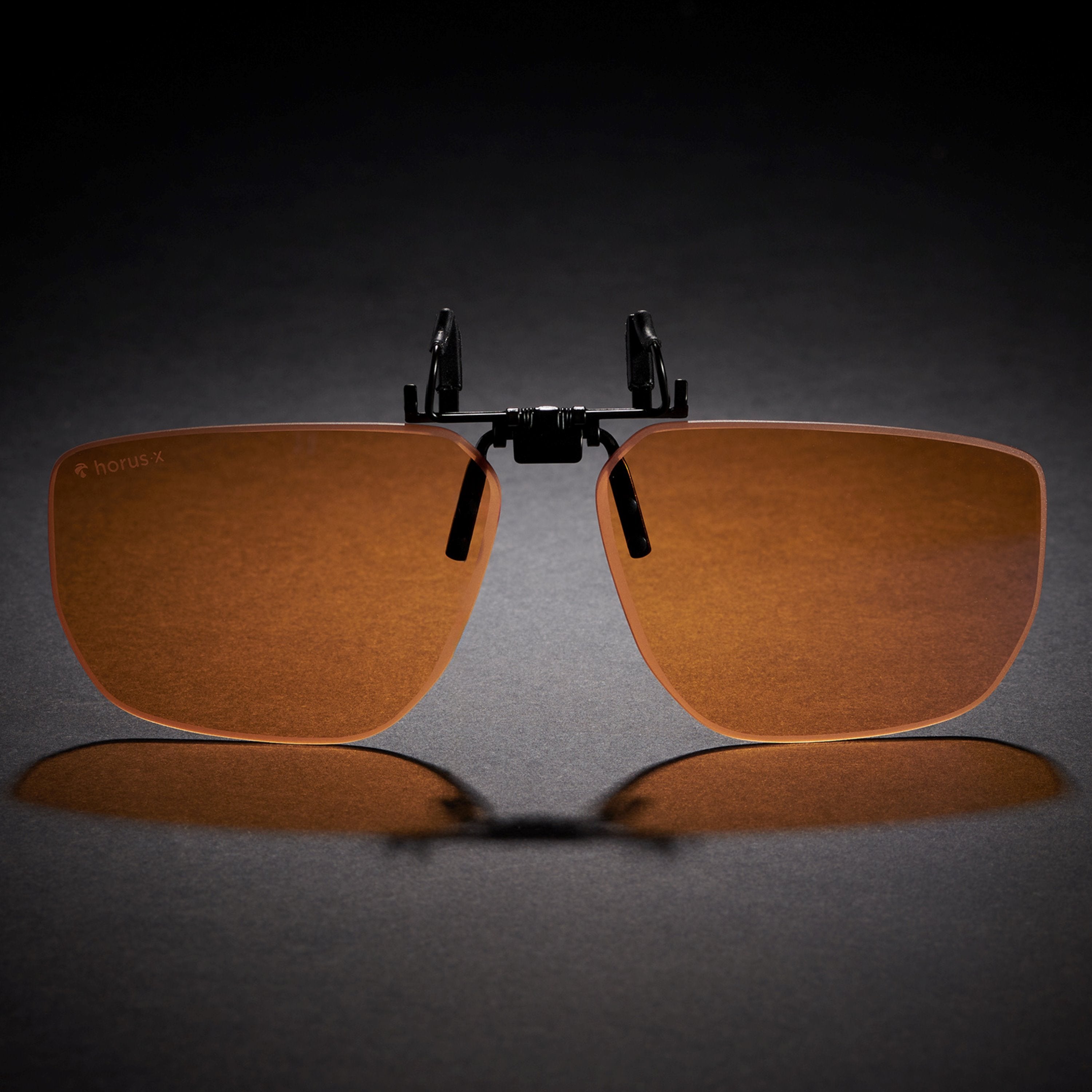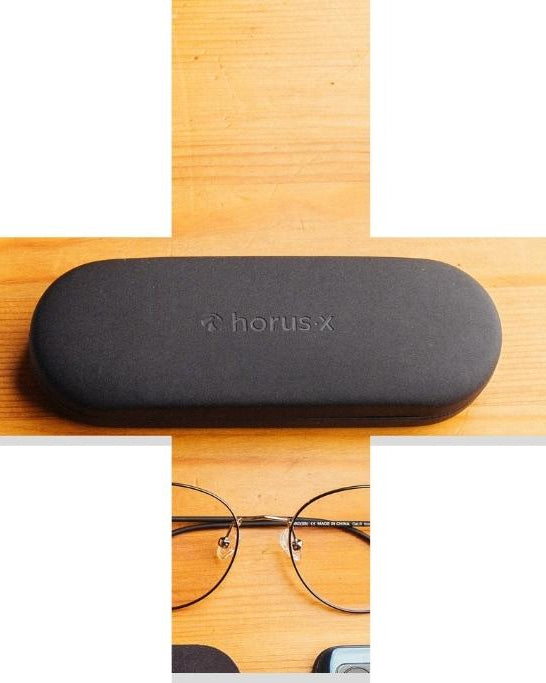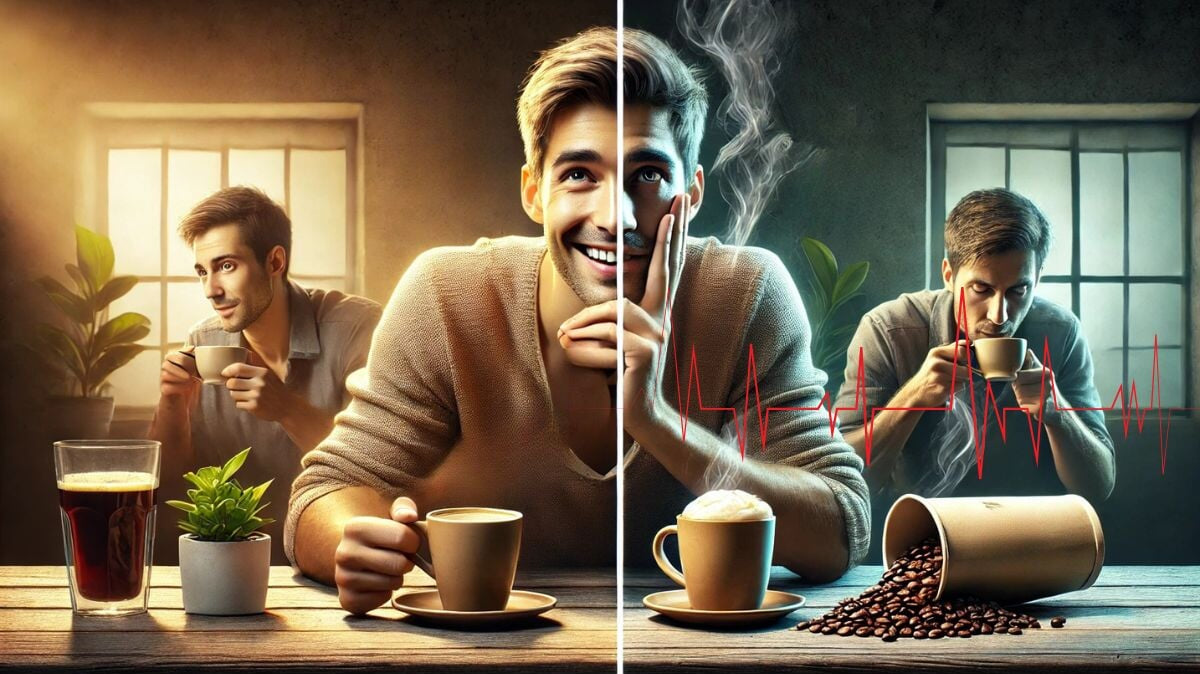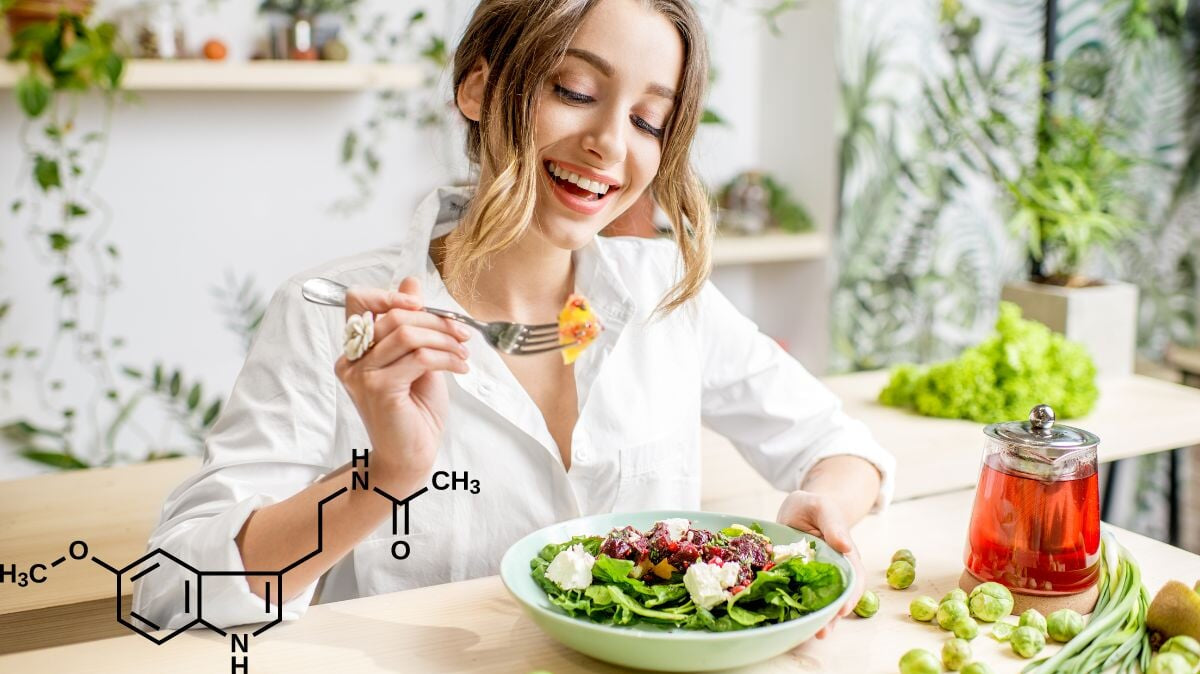Taking care of your eyes naturally is essential. Even more today as we spend more and more time in front of screens. To help our eyesight stay on top, we need to identify which vitamins are most important for our eyes.
In this article :
1) Vitamins for the eyes
2) Vitamins: counter the causes of visual degeneration
3) Adapt your diet and habits
vitamins for the eyes
Vitamin A

Vitamin A is essentially formed by Beta-carotene present in a whole host of foods, mainly orange vegetables such as:
- 🍠 sweet potato
- 🥕 carrot
- 🎃 pumpkin...etc.
More often than not, you will hear about beta-carotene directly or sometimes retinoids rather than vitamin A.
👉 Vitamin A has beneficial effects on the whole body and acts on many levels, but its involvement in eye health is now clearly recognized and therefore makes it a must when you want to take care of yourself. his view.
In your diet, opt for a regular consumption of vegetables rich in beta carotene.
You can also eat liver from fish or farm animals that are very rich in vitamin A which is directly assimilated by the body, but this menu will not be to everyone's taste.
Note, however, that ANSES notes certain risks associated with the overconsumption of vitamin A:
-
During pregnancy, " excess vitamin A is associated with congenital malformations. Pregnant women should not consume liver on a regular basis , because this food contains large amounts of directly assimilable vitamin A" ( Source ANSES )
Vitamins C and E

What do these two eye vitamins have in common? their antioxidant properties.
👉 Both are considered to reduce the risk of eye diseases such as cataracts , without this having been proven by scientific studies. Nevertheless, vitamin C and vitamin E are two essential supplements for the good health of your body in general and their consumption cannot do any harm.
Foods rich in vitamin C, between fruits and vegetables
- 🍊 orange
- 🥝 the kiwi
- 🍓 strawberry
- 🥦 broccoli
- 🫑 bell pepper.
Foods rich in vitamin E:
- 🐿️ nuts and almonds
- 🥜 peanuts
- 🟠 dried apricots
Generally speaking, eating foods that contain natural antioxidants like vitamins C and E is a good way to slow down the aging of your eyes.
Vitamin D

In the department of vitamins that still keep a lot of secrets, vitamin D is well established!
👉 Indeed, if some recent studies have established a link between vitamin D deficiencies and certain pathologies such as age-related macular degeneration, it is still too early to really understand why and how this is explained. Nevertheless, this vitamin D seems to have more than one trick up its sleeve and it actively participates in increasing the concentrations of calcium and phosphorus in the blood .
This function, which is essential to the proper functioning of our body, plays an important or even determining role in the good health of our muscles or our nerve endings, for example, which could explain its usefulness in maintaining our eyesight.
Some publications also report the usefulness of vitamin D in the context of dry eyes insisting on the fact that it would help to limit them.
🌞 To provide your body with vitamin D, nothing could be simpler. 10 to 15 min of daily exposure to the sun's rays is enough (don't forget your sunglasses to protect yourself from UV all the same).
Be careful to always protect your eyes, we are not talking here about staring at the sun (with or without glasses).
Zinc

Zinc is a mineral that notably allows the transport of vitamin A between the liver and the retina in order to promote the production of melanin .
Melanin is an essential pigment that protects our body in particular from the sun. But remember what we were talking about earlier about our favorite star, in small doses yes, high exposure no.
👉 Zinc therefore allows, through its carrier functions, to improve the protection offered by melanin to your eye but also to the rest of your skin.
You will find zinc in meat (veal liver and beef in particular), in seafood such as oysters, crab and lobster, but also in pumpkin seeds, cashews, pecans and others. peanuts. During the holidays, stop feeling guilty and let go! It is good for the healt !
The main causes of visual degeneration
Dry eyes, age-related macular degeneration, blurred vision, headaches... So many problems that you may or may suffer from in the future.
But to better anticipate, we must first understand what is causing it.
👵 Aging
And yes, as we age, our eyesight tends to decline and our eyes get tired.
The most common sign of eye aging is presbyopia . This difficulty in seeing up close is caused by a loss of flexibility of the lens. It is sometimes compensated for in myopic people but most often requires consulting an ophthalmologist and using glasses.
With age, dry eyes will also tend to intensify. They are also more common among people who spend a lot of time in front of screens.
Despite everything, today there are ways to slow down the aging of the retina and keep our eyes healthy.
🌞 The sun
Although necessary for our body and full of good vibes, the sun is also harmful if it is too exposed to our eyes.
It is essential to protect your eyes from it by wearing suitable glasses, especially in the mountains or in places where the reverberation is greater.
💩 Poor hygiene
Wear your contact lenses in the shower, bathe with them, sleep with them... Stop! You risk causing infections.
Do not wear protective goggles to carry out work such as welding, cutting materials, etc. Stop too!
Rubbing your eyes too regularly can also lead to contamination and therefore create infections.
Even more surprisingly, using expired make-up could also be the source of eye contamination. So we are careful.
👨💻 Screens and blue light
It has been proven that screens play an important role in the onset of certain eye disorders such as dry eye. More and more studies also show the contribution to AMD-type pathologies (blue light is the one that contributes the most!)
Indeed, the number of blinks in front of a screen is much lower than during another activity. This decreases the hydration of the eye and thus promotes the feeling of dryness.
Some of these problems can be limited or delayed by adapting our diet to the needs of our eyes. But in the absence of a perfect diet, you can resort to dedicated vitamin cures.
Adapt your diet and habits
🥗 The Mediterranean diet
Dr. C. Schneiderrouhaud (Ophthalmologist) and nutritionist dietician C. Farrugia from Montpellier University Hospital have published a very simple and comprehensive document on this subject, highlighting the diet to be favored to avoid or limit the risks of macular degeneration linked to 'age.
We thus speak of Mediterranean foods because the basis of this menu is made of common vegetables in this type of meal and fatty fish such as salmon, herring, sardines...etc.
This diet will allow you to consume the products necessary for optimal intakes of the various elements mentioned above and therefore to maintain good vision.
💊 Food supplements
If you can't maintain an optimal diet, you can opt for dietary supplements .
Be careful despite everything to choose recognized brands and to buy preferably in pharmacies. Also take the time to read the recommendations (special attention should be paid to pregnant women) and calculate the dosage. Vitamins are good but it's like everything, never in excess.
👩💻 Control screen exposure
The blue light emitted by screens can promote the appearance of certain symptoms such as: dry eyes, headaches, heavy eyelids,itchy eyes , etc.
To limit these problems, try to limit the time you spend in front of screens, especially in the evening or in low light. During the day at the office, take breaks regularly by looking out the window ( this is where you will be most productive ), 1 min every half hour, just that, and you will already feel better.
Straighten your head, look away, and rest your eyes.
🤓 Protect your eyes
We have already mentioned the case of the sun and the need to protect our eyes from its UV rays by wearing suitable glasses.
The same is true for blue light. You can opt for protection by means of a screen filter to add to your computer monitor or for blue light blocking glasses .
The operation is the same, by filtering the harmful part of the light spectrum responsible for the inconveniences mentioned above, you will greatly reduce the discomfort linked to prolonged exposure to screens and limit the appearance of certain eye diseases in the long term.
👩⚕️ Consult an ophthalmologist regularly
It's very simple, but if you experience certain visual disturbances, the first thing to do is to make an appointment with a specialized doctor.
The latter can check if you need a correction and advise you on how to preserve your eyes on a daily basis.
From the age of 50, it is advisable to schedule 1 appointment per year and if you wear glasses before this age, at least 1 appointment every 2 years to have the evolution of your sight checked.
In summary
Vitamins A, C, E, D and zinc!
Zinc and certain vitamins will have a greater impact on eye health, but overall all vitamins are important for the body. Carotene and foods rich in carotenoids will help your body protect your eyes from certain eye diseases.
On the other hand, vitamins are not a miracle cure! They support the daily functioning of our body and in particular eye health but cannot be enough to fight against macular degeneration or other eye diseases.
Good eating habits
Rather than opting directly for food supplements, start by adapting your daily diet by adding oily fish, carrots, peppers, oranges and strawberries to the menu!
Daily precautions
Protect your eyes from the sun and blue light by wearing suitable glasses or by limiting your exposure.
Regular monitoring
Take the time to consult an ophthalmologist as soon as you experience visual disturbances or headaches to check the state of your eyesight.



